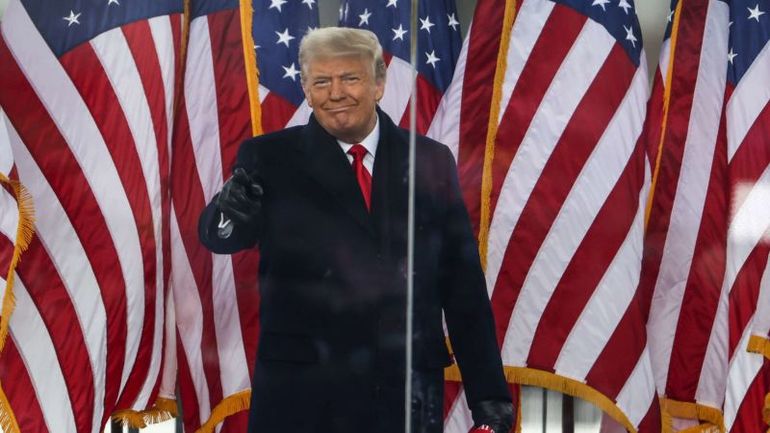
Trump challenges ruling barring him from Illinois primary ballots

Former President Donald Trump is challenging a judge's decision that prevented his inclusion on the Republican primary ballot in Illinois. Learn more about Trump's appeal in the upcoming state election.
Former President Donald Trump is challenging a ruling by an Illinois judge that prevented him from being included on the state's Republican primary ballot. Cook County Circuit Judge Tracie Porter, a Democrat, found that Trump's involvement in the January 6, 2021 insurrection disqualified him from holding office under the 14th Amendment.
The case was brought to court after the Illinois State Board of Elections dismissed the challenge citing lack of jurisdiction. A retired Republican judge, appointed by the panel to review evidence, determined that Trump had engaged in insurrection. However, the judge stated that only the courts, not the board, had the authority to remove him from the ballot.
The GOP primary in delegate-rich Illinois is scheduled for March 19. With ballots already printed and early voting in progress, a recent unexpected court decision has raised doubts about the validity of votes cast for Trump.
Porter issued her decision on Wednesday night and granted a two-day pause for Trump to appeal. However, she did not extend the ruling beyond that timeframe. Trump's legal team requested on Thursday for the pause to be extended until all potential appeals are exhausted in Illinois courts.
In their filing, Trump's lawyers argued that staying the judgment until the Illinois appellate courts make a final decision would minimize the risk of voter confusion and logistical challenges for election officials.
It is conceivable that an Illinois appeals court may intervene to prolong the suspension. Trump's legal team has indicated their intention to request this action if Porter does not comply.
The Illinois controversy is further complicated by the looming presence of the US Supreme Court. The Court recently heard arguments in a similar case from Colorado involving an "insurrectionist ban" that led to Trump's removal from the ballot. The justices appeared inclined to overturn the decision, setting the stage for a potential clash with the Illinois court ruling.
The 14th Amendment, ratified post-Civil War, prohibits US officials from holding future office if they have participated in insurrection or supported insurrectionists after taking an oath to uphold the Constitution.
Despite this provision, the Constitution does not provide clear guidelines on how to implement this ban, leading to uncertainty about its application to the presidency.
Illinois, Colorado and Maine are the only states so far to disqualify Trump.
Editor's P/S:
The court battle over Trump's eligibility to run for office highlights the ongoing debate about the limits of the 14th Amendment and the delicate balance between upholding the rule of law and respecting the will of the voters. The unexpected court decision in Illinois has raised concerns about voter confusion and logistical challenges, emphasizing the importance of timely and clear legal rulings in election matters.
The potential intervention of the US Supreme Court adds another layer of complexity to the situation. The Court's recent hearing on a similar case from Colorado suggests a potential shift in its interpretation of the 14th Amendment, which could have far-reaching implications for the future of American elections. It remains to be seen how the Illinois court ruling will ultimately be resolved, but it underscores the need for careful consideration of the legal and constitutional implications of barring individuals from holding office due to their actions related to insurrections.













